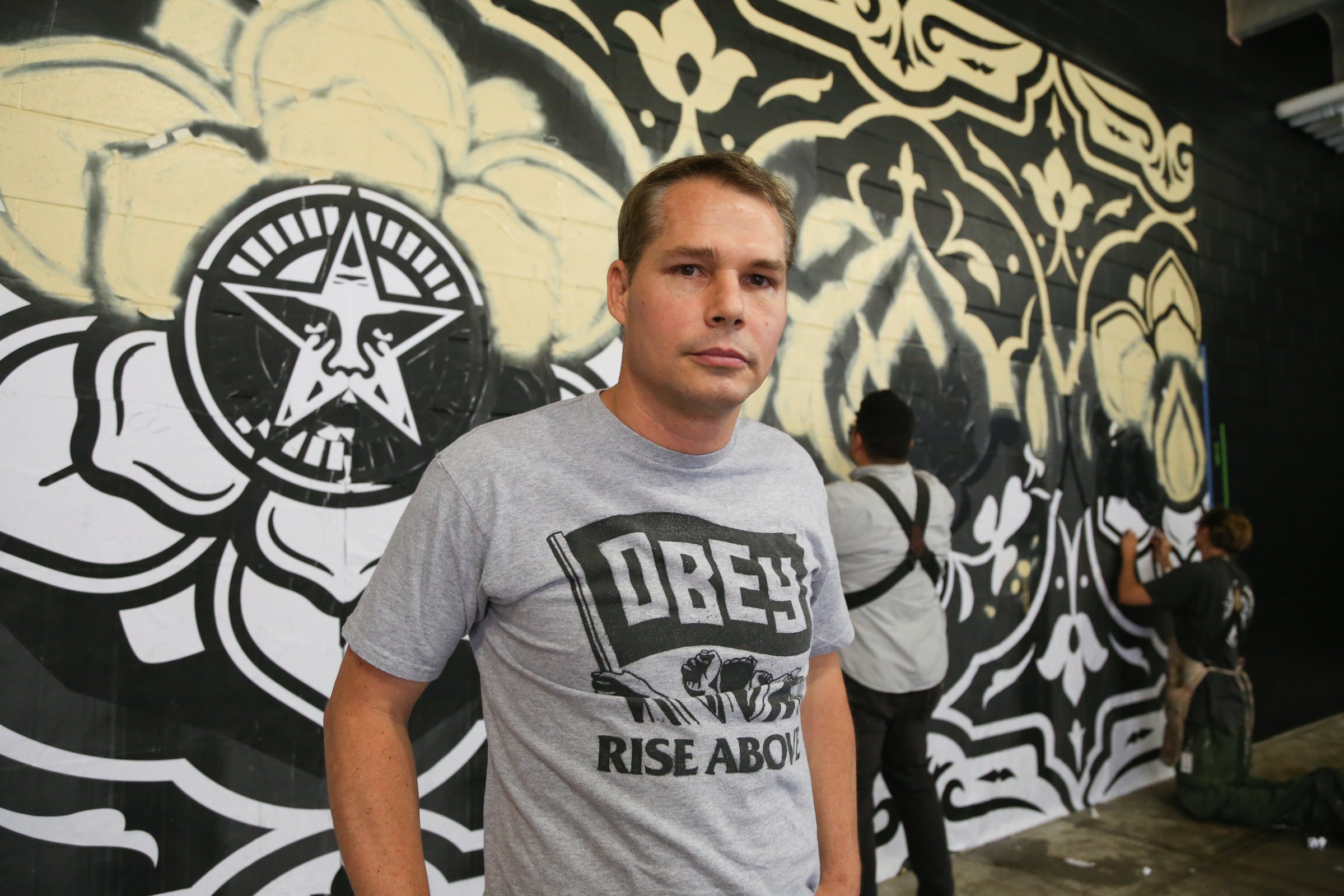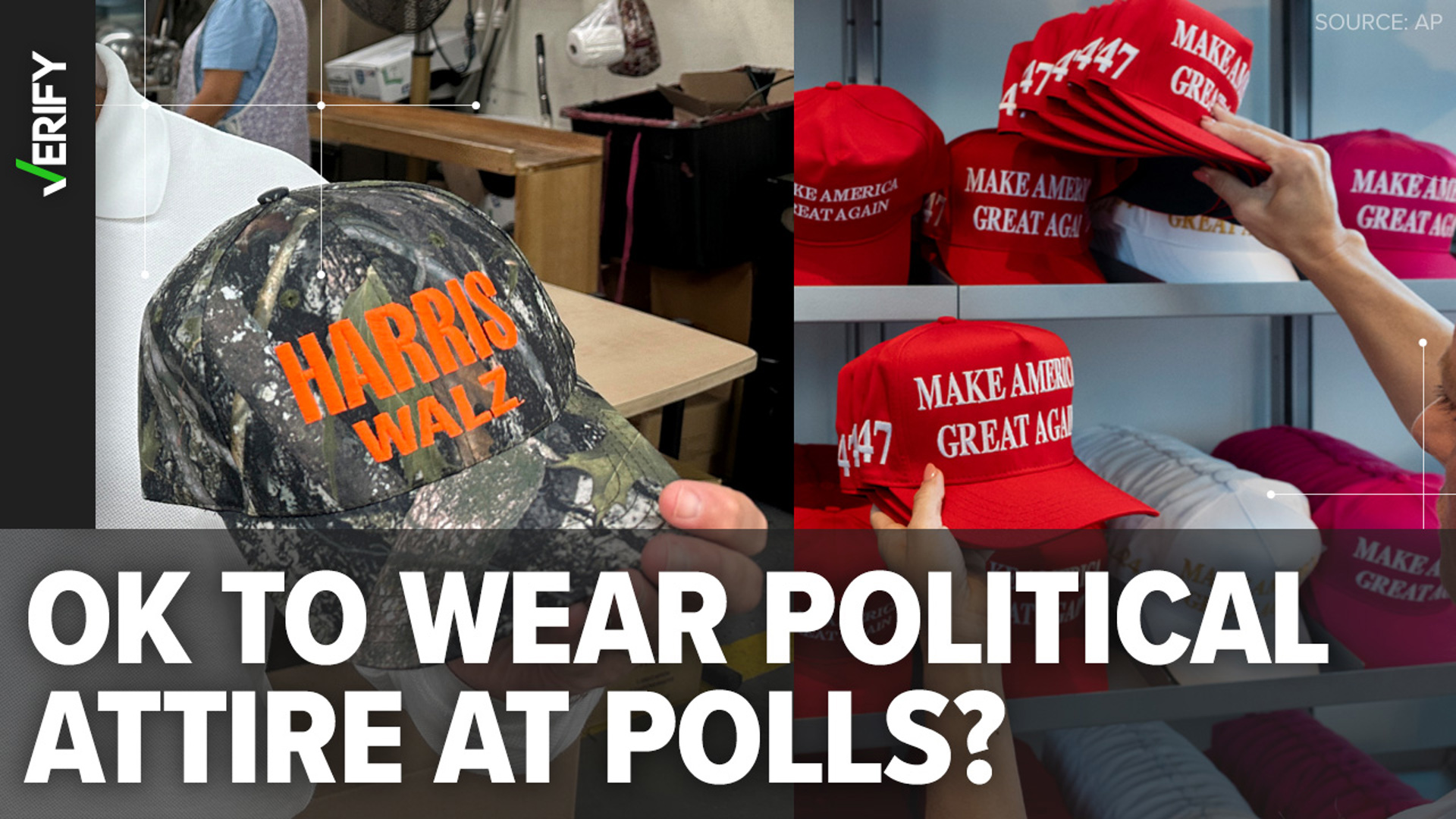![635720471039380696-Fairey[ID=29918545] ID=29918545](http://www.gannett-cdn.com/-mm-/869412ef70706aa7499a41edec2d623cbcceff78/c=264-0-2136-1600/local/-/media/2015/07/09/DetroitFreePress/DetroitFreePress/635720471039380696-Fairey.JPG)
"He is expected to turn himself in," John Roach, a spokesman for Mayor Mike Duggan's office, said late Monday. "I don't have any details, but our law department has spoken with Mr. Fairey's representatives."
Fairey took a flight from Los Angeles — where he was initially detained last week — to Detroit on Monday evening.
Fairey, 45, is accused of causing about $9,000 in damage to nine illegally tagged properties while he was in Detroit in May. He was invited to the city for commissioned work that included an 18-story mural on One Campus Martius for Dan Gilbert's Bedrock Real Estate Services and others.
![Shepard Fairey opening of solo exhibition 'Printed Matters'[ID=27856925] ID=27856925](http://www.gannett-cdn.com/-mm-/80a06c39fdda701258db8d7b872e088287c3e49f/c=88-0-713-534/local/-/media/2015/05/23/DetroitFreePress/DetroitFreePress/635680031261437457-shepard-01.jpg)
Fairey faces two counts of malicious destruction of property, which carry a maximum penalty of five years in jail, plus fines that could exceed $10,000.
Approached after the flight, Fairey declined to speak on the issue: "Can't talk about anything," he said.
Last week, Fairey was arrested because of the Detroit warrant while he was trying to re-enter the country in Los Angeles. But because authorities here opted not to extradite him, he was released.
Police said when Fairey was in Detroit, he vandalized nine different locations by pasting posters that included his signature image of Andre the Giant. Two locations were city-owned property, authorities said.
Before work began on the 18-story mural, Fairey told the Detroit Free Press that he intended to leave illegal marks in the city.
"I still do stuff on the street without permission. I'll be doing stuff on the street when I'm in Detroit," said Fairey in May.
Fairey's legal troubles in Detroit open a window into the evolution of street art, from its illegal origins into its more professionalized genre recognized in museums and galleries. Fairey has always liked to play both sides of the street, accepting major commissions like the One Campus Martius but also retaining his street credibility by continuing to work in the shadows, tagging private property without authorization.
![Street artist at work: Shepard Fairey ready to tag Detroit[ID=27460819] ID=27460819](http://www.gannett-cdn.com/-mm-/ed4aed4dadb5de2d3e6904b3b731ab3ac8c68b16/c=88-0-712-533/local/-/media/2015/05/16/DetroitFreePress/DetroitFreePress/635674011215826926-Artist-Shepard-Fairey-01.jpg)
Fairey is still best-known for creating the now-iconic "Hope" poster of Barack Obama during the 2008 presidential campaign.
He is no stranger to legal troubles — he has been arrested more than 15 times for defacing public property, and was also sentenced in federal court to two years of probation and fined $25,000 in 2012 for tampering with evidence in a case growing out of a copyright battle with The Associated Press over the Obama "Hope" image.
Contributing: Mark Stryker, Steve Byrne and Daniel Bethencourt, Detroit Free Press.


